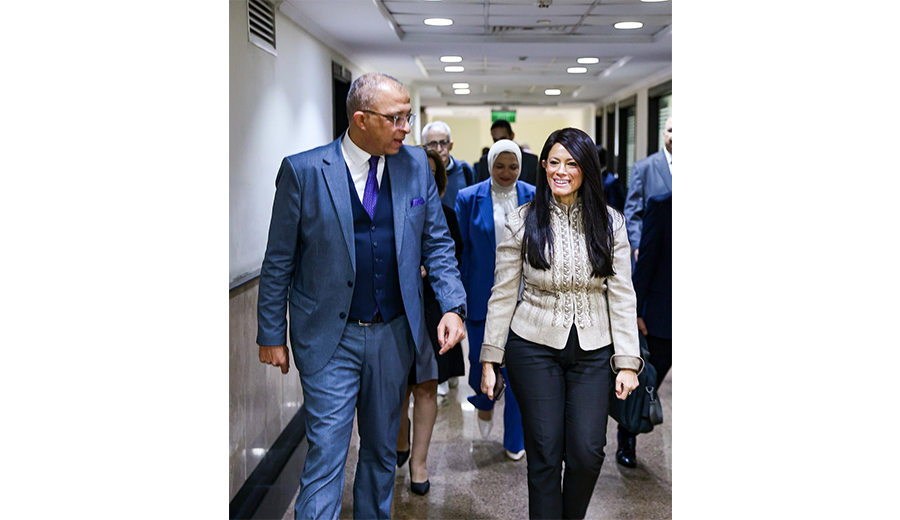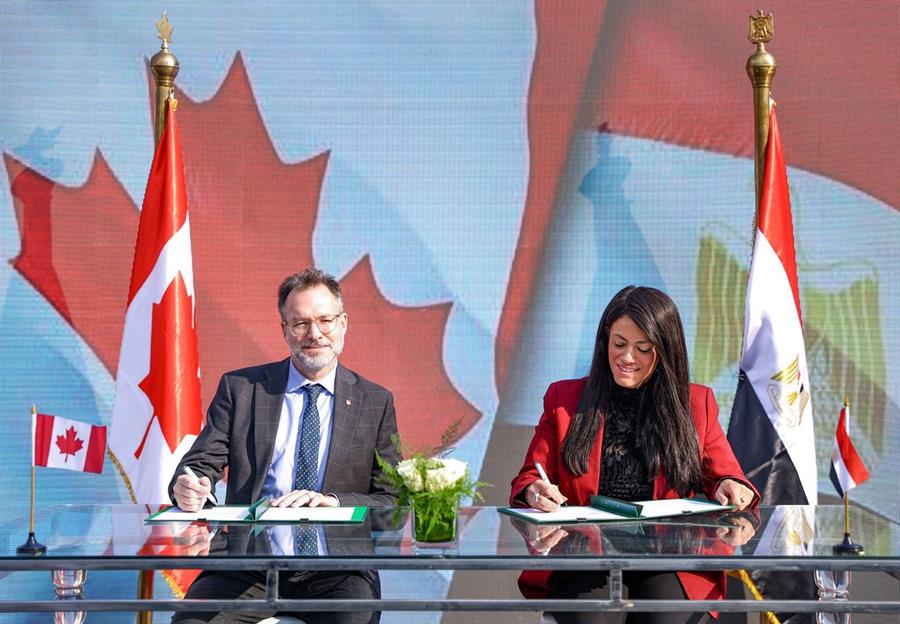The Minister of Planning and Economic Development participates in the opening session of the Arab Parliamentarians Forum on Population and Development

02 March 2022
Dr. Hala El-Said , Minister of Planning and Economic Development, participated on Wednesday in the opening session of the Arab Parliamentarians Forum on Population and Development in the House of Representatives.
During her speech, Dr. Hala El-Said pointed to the importance of the forum as an important platform for dialogue between symbols of parliamentary action, aimed at developing population policies, and enhancing coordination and partnership between Arab parliamentary councils.
El-Said explained that the population challenge is the common element in many development challenges that Arab countries face at the local level, and the countries of the world at large, in light of the increase in the world's population, and the development burdens it imposes on many countries.
El-Said pointed out that the world population has doubled since 1950 (from 2.6 billion people) to reach about 7.7 billion people today.
The world population is expected to reach 8.5 billion in 2030, and the world population is expected to increase by two billion people in the next 30 years, which means reaching 9.7 billion people by 2050.
El-Said continued that this challenge applies in varying degrees to the Arab countries, as the population of the Arab countries in 2020 reached about 431 million people, with a growth rate of about 1.8% between 2010 and 2020, a high rate that exceeds that of the major regions of the world.
One of the important demographic indicators that Arab countries face is the high rate of the age group under the age of 15, as it stands at about 32.7%, or nearly a third of the population, which is also a percentage that far exceeds that of Latin American countries and the countries of the world.
Dr. Hala El-Said added that these indicators pose a challenge, represented in the limited ability of Arab countries to meet the needs of the growing population for quality health care, decent housing, quality education, and the provision of suitable job opportunities, all of which is reflected in the high unemployment.
El-Said clarified that although the Arab region is not the largest in the world in terms of the working-age population, it is the highest region in the world in unemployment rates at 12.7% (about 17 million unemployed in 2020), which is negatively reflected in the situation Arab countries in the human capital index.
El-Said stressed that the need to balance the available resources and the size of the population is the main problem associated with the population issue and its development repercussions.
As the population increase negatively affects the occurrence of this imbalance between resources and population and accordingly increases economic and social pressures, the per capita share of the return on development efforts and the fruits of economic growth declines.
The Minister of Planning referred to the national project for the development of the Egyptian family, which was launched two days ago, under the honor of the President of the Republic.
El-Said pointed out that the Egyptian state deals with the population issue within the framework of more comprehensive efforts to achieve sustainable economic and social development, through which development initiatives and projects are implemented to provide adequate housing and decent life, and intensify investment in people, to improve the quality of life for the Egyptian citizen as the state's strategic goal.
She explained that the "Decent Life" initiative is the largest development initiative in the history of Egypt and the world in terms of funding volume and the number of beneficiaries.
The project targets all the villages of the Egyptian countryside (about 4,500 villages live in which more than half of the population of Egypt - 58 million citizens), the state seeks to transform into sustainable rural communities that meet all development needs within three years, at a total cost of about 52 billion dollars.
Dr. Hala El-Said said that the Egyptian economy has achieved positive growth rates despite the unprecedented repercussions of the Covid-19 pandemic, as well as achieving a remarkable improvement in many human development indicators, including reducing mortality rates for children under the age of five, raising the average age at birth, and reducing the dropout rate from education. Increasing the percentage of coverage with drinking water to reach 99%, as well as increasing the coverage of sewage services (from 50% in 2014 to 65% in 2020).









